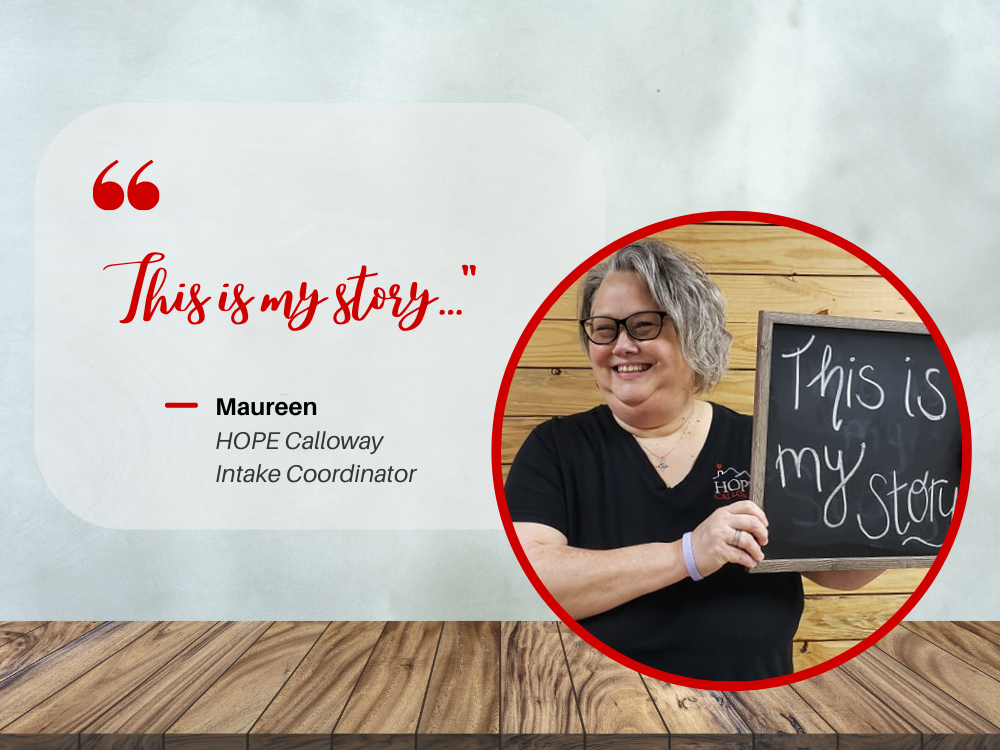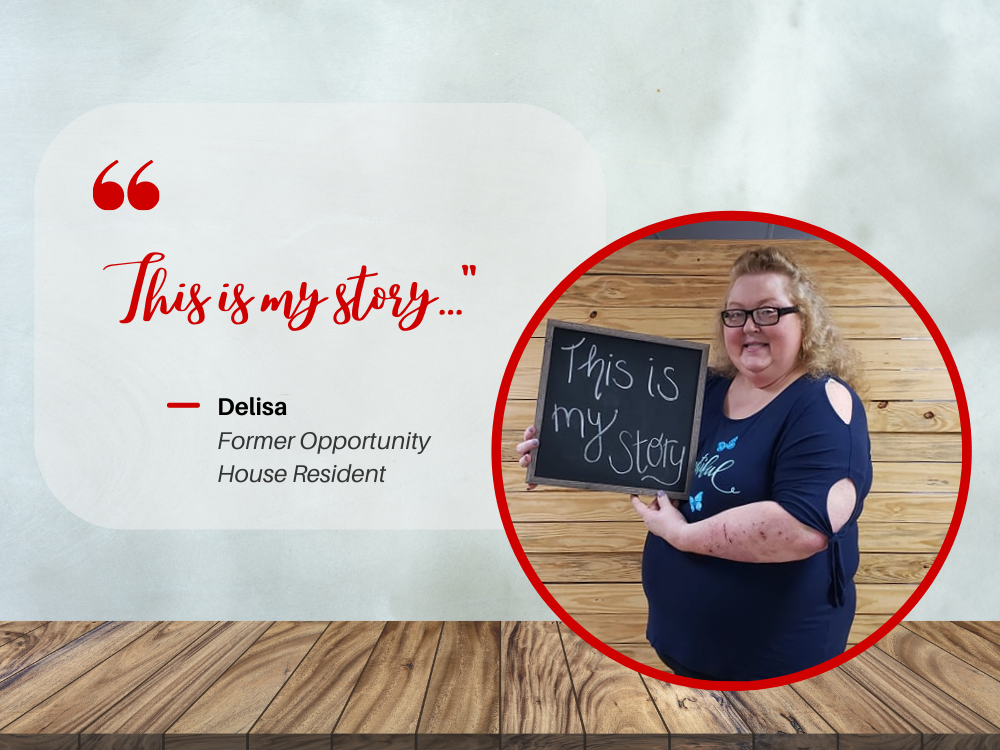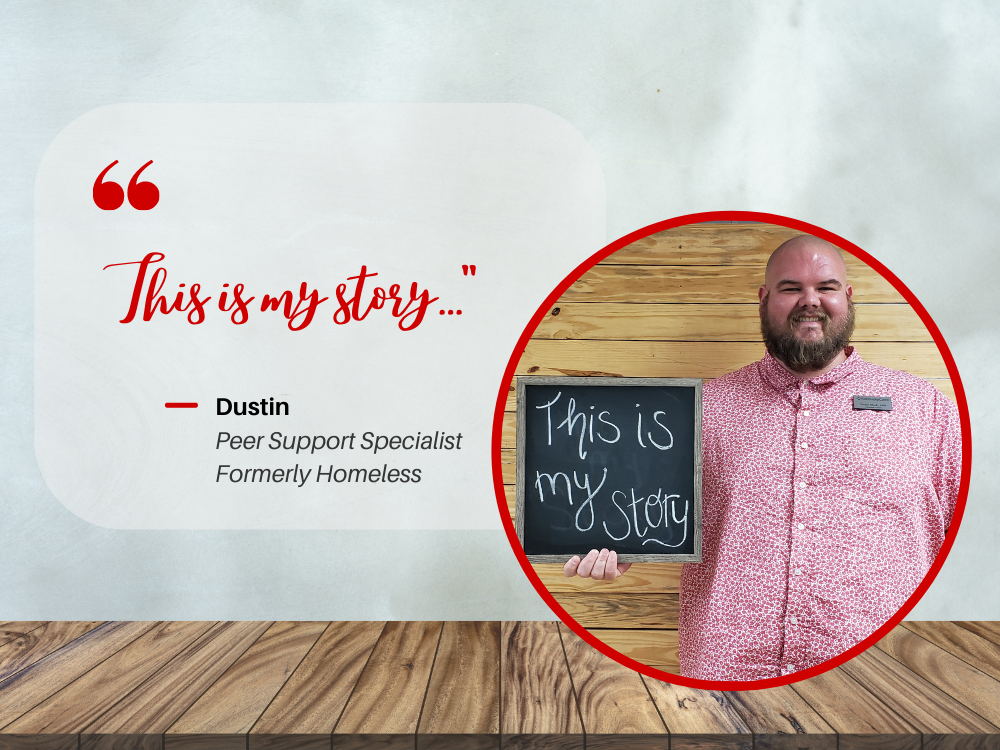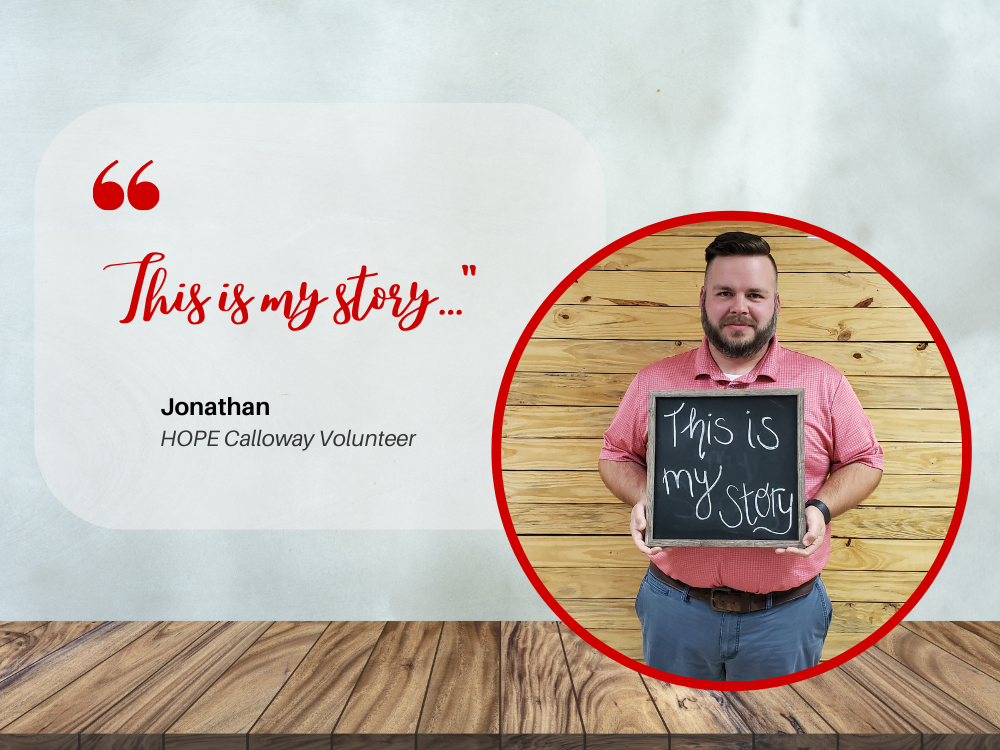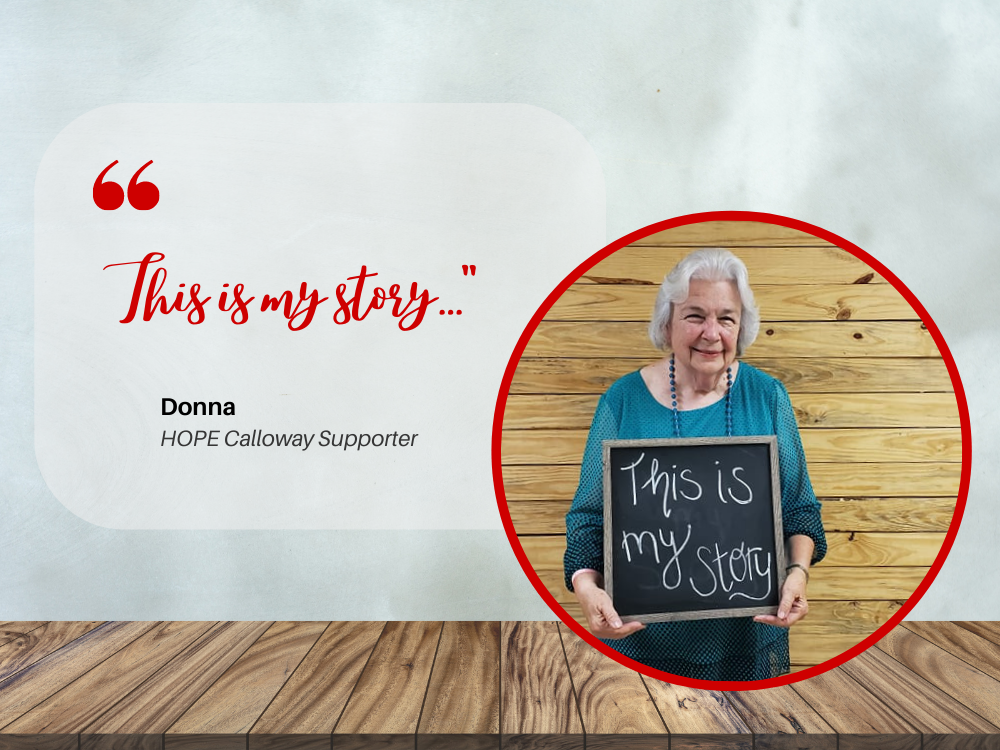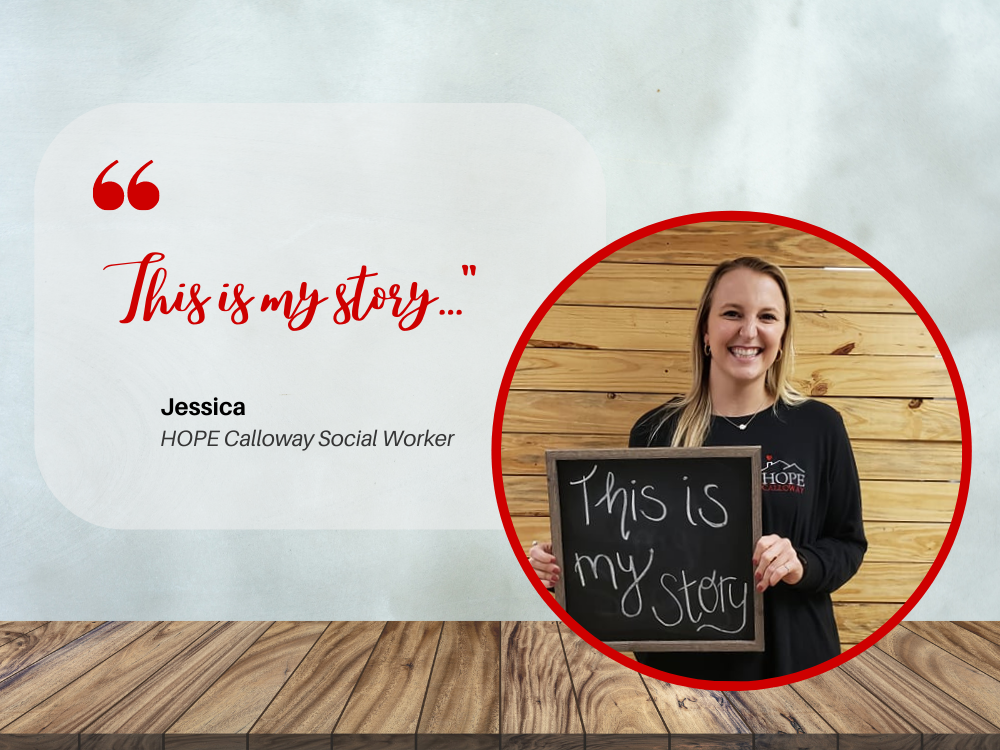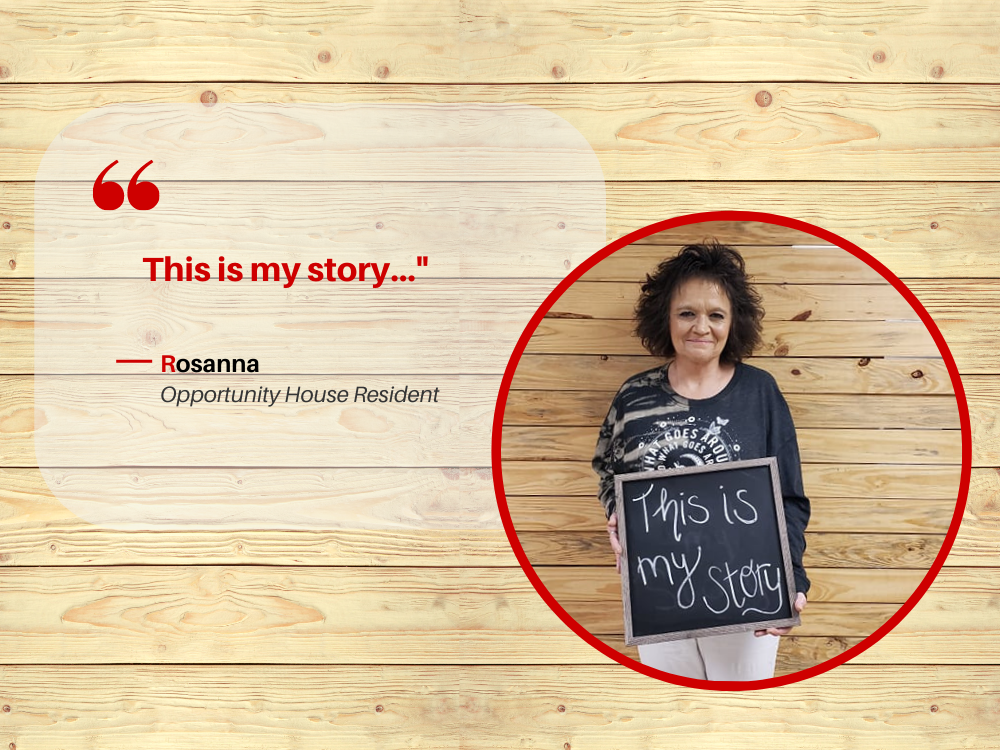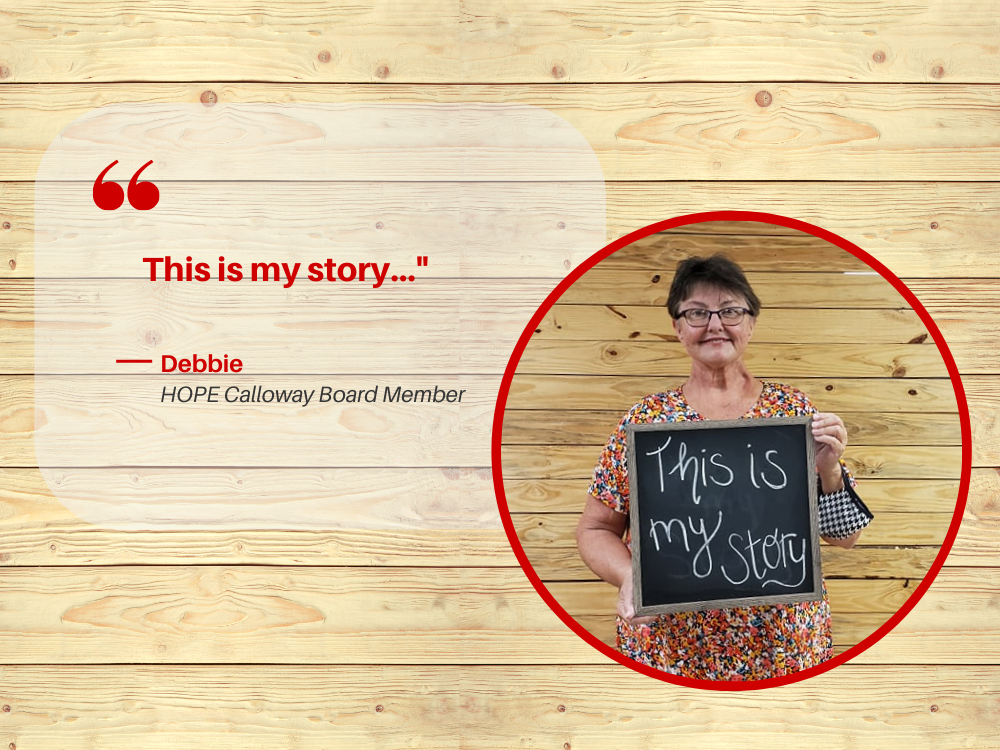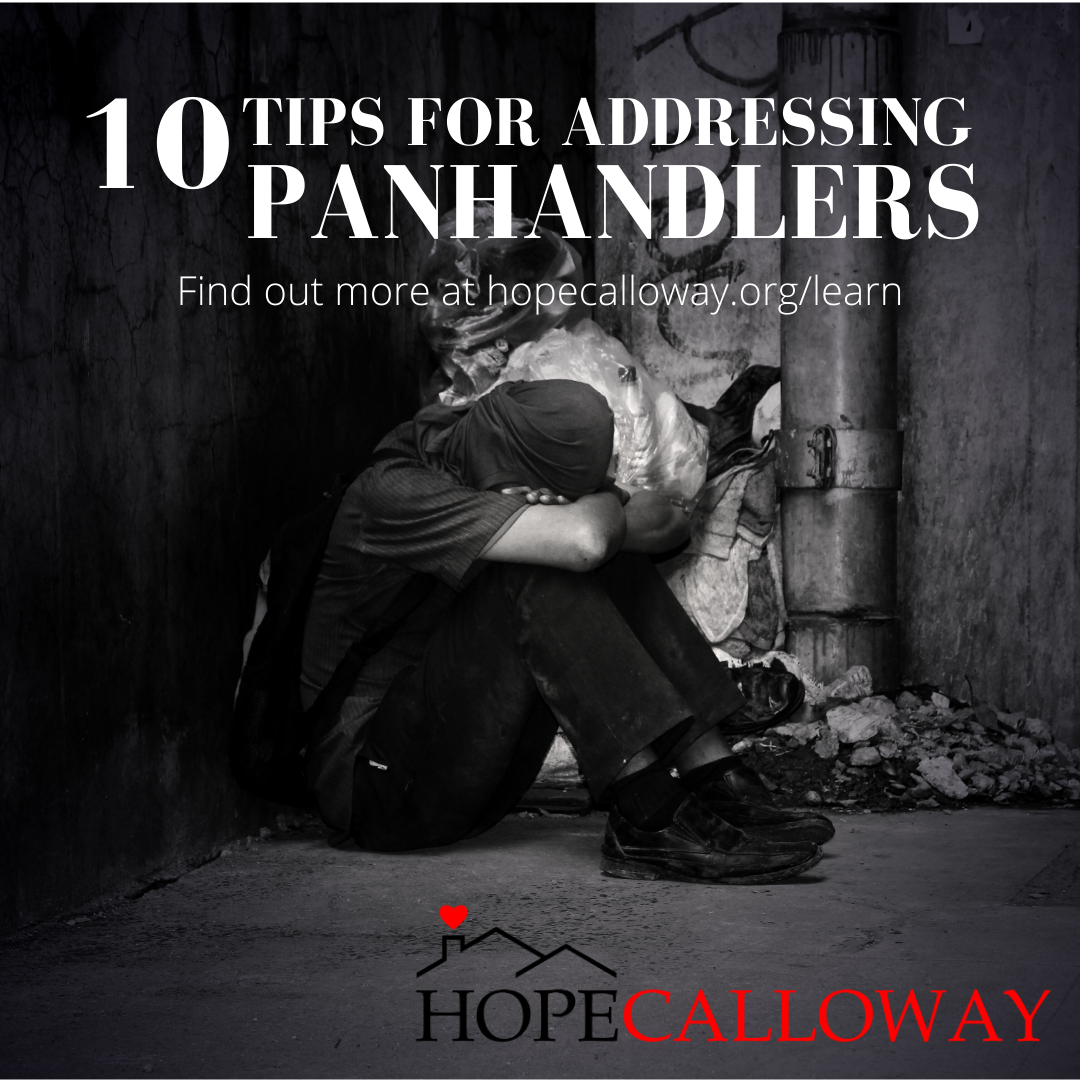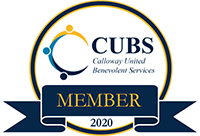Listen to Maureen’s story as she shares why she loves her job at HOPE Calloway and how she strives to help others.
Listen as Delisa talks about her experiences with homelessness and how HOPE Calloway was able to help.
Dustin talks about how he is able to use his experiences with homelessness and drug abuse to help others who are in similar situations.
Jonathan Carter shares how turning his life to Christ helped him to restructure his priorities in a way that led him out of homelessness.
HOPE Calloway supporter, Donna Herndon, knows the importance of caring for others.
HOPE Calloway’s social worker, Jessica Louis, loves that her job gives her an opportunity to not only help clients with their needs, but to also share the love of Christ with them. Get to know Jessica as she shares her story.
HOPE Calloway client, Rosanna, shares how HOPE Calloway has helped her with both her physical and emotional needs
HOPE Board Member, Debbie Smith, LOVES the people of our community. Here, Debbie shares her experiences that led her to serving both the hungry and homeless in Calloway County.
If you knew of a tool that could bring your mind, family, and finances into harmony, dramatically reduce stress, and make the challenges of life much more manageable, would you take advantage of this tool?
Such a tool does exist. A budget allows you to take control of your finances, instead of your finances controlling you.
You can create a budget that supports your family and making sure the necessities are taken care of.
Simply follow these steps to experience peace of mind and excitement about your future:
- Find the starting line. The first crucial step in creating a household budget that works is to list all your income and keep track of every dime you spend for a month. Before you can know where you’re going, you must know your starting point.
-
- You’ll be surprised to learn where your money goes each month. This awareness alone may change your spending habits for the better.
- Use credit wisely and sparingly. Using credit cards or payday loans can seem like no big deal. Credit card issuers often give special deals and incentives to lure people into applying for credit they don’t need. With large spending limits and small incomes, credit cards tempted you to live a lifestyle you can’t afford.
-
- The national average annual percentage rate (APR) for a payday loan is almost 400 percent. That’s over 20 times the average credit card interest rate. And often, borrowers can’t pay back the loan right away. What seems like an easy way to fix your financial problem causes overwhelming debt that hurts you even more in the long run.
- Keep your accounts balanced. One of the simplest and most productive habits you can incorporate into your personal financial success plan is to maintain a balanced ledger. Keep track of everything that goes in and out of your account by writing it down or logging it in an app. At the end of the month, compare your ledger to your bank statement.
-
- When you’re keeping track of what you spend, you may feel less tempted to waste money on impulse purchases. You’ll always know when the money is almost out. This can save you a lot of money on overdraft fees and a lot of headaches.
- Reduce expenses. There’s no secret to a successful budget. It’s as simple as keeping track of your income and expenses, increasing your income, or lowering your expenses until you spend less than you earn.
-
- Once you have a good grasp on what you’re spending and where, find places to cut back. Clip coupons and look for grocery sales. Turn off the lights when you leave the room. Turn the air conditioner off when you leave the house. And cook ahead of time to save on the expense of eating out.
Financial pressures can make all of life seem overwhelming at times. If you implement these simple steps and commit to maintaining a rock-solid budget for your family, you’ll experience financial peace. Beyond that, however, every area of your life will improve as you’re more relaxed and at ease with the peace of mind you’ve achieved.
“If a panhandler asks me for money, what should I do?”
This question is asked almost every time I give a talk about homelessness, or when people find out I work for HOPE Calloway. Here is my advice based upon my knowledge of homelessness and talking with panhandlers.
1. Give or don’t give. It is really your choice. But always look the person in the eye who is asking and say “Hi.” If you are not going to give then add, “Sorry I can’t help today.” If you are going to give add, “Hope this helps.” Either way, always treat the person with respect. They are human beings, made in the image of God.
2. If you do give to a panhandler, remember it is a gift, and the person is free to do with it whatever he or she wants to do. “Give to everyone who asks and don’t ask people to return what they have taken from you.” Luke 6:30 CEV
3. If you do not give that is okay too. Panhandlers know most people will not give. One said to me, “I expect to get turned down most of the time, and it doesn’t bother me. Just treat me with respect.” (See Tip #1 above).
4. If you feel unsafe or the person panhandling is being aggressive or threatening, leave the area and don’t give. As one panhandler said to me, “There are jerks in every line of life. Don’t reward them.” Contact local authorities if you are concerned that the person panhandling may be a danger to themselves or others.
5. Sometimes give more than you are being asked for. If someone asks for a dollar, give them five! Both you and the panhandler can share in the joy of that unexpected gift.
6. Set a limit or a boundary to your giving. Once you have reached that limit, respond to anyone who asks, “I’ve given out already what I give each day.”
7. There are people who panhandle who are not homeless. They are simply poor. It is near impossible to tell the difference between a homeless panhandler and one who is not. So, again, give if you want, or do not give if you do not want to, but treat everyone with respect. (See Tip #1 above).
8. Feeling awkward or uncomfortable when you see a panhandler or are asked for money is okay. It means you have a conscience and some compassion.
9. If you have time, and are so inclined, volunteer with an organization that works with people on the streets offering food, or shelter, or medical care etc. You will get to know some really interesting people and they will get to know you. You might see them on the streets from time to time and you can wave and yell “Hi!”
10. If you really want to help people who panhandle, support organizations in your area that provide services and resources to homeless or hungry people. Also resist all efforts to dehumanize, disrespect, and criminalize people who are on the streets with laws like “No panhandling” or myths like “Panhandlers make a lot of money panhandling.”
There will always be those among us who look to take advantage of your generosity. Do not let that stop you from giving. Reach out to our office if your have concerns about someone you meet on the street. Chances are, we’ve already met them.

